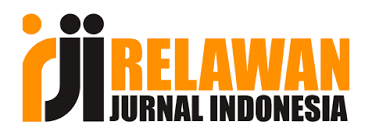Strategies for Improving the Moral Development of Assisted Children in Special Children's Development Institutions: A Literature Review
Strategi Peningkatkan Perkembangan Moral Anak Binaan di Lembaga Pembinaan Khusus Anak: Kajian Literatur
DOI:
https://doi.org/10.64272/16eg4a74Keywords:
Education, LPKA, Moral development, PrisonersAbstract
The high rate of violence against children and the increase in cases of children in conflict with the law are serious problems in Indonesia. Data from the Indonesian Child Protection Commission) recorded 141 cases of violence against children in early 2024, with 35% of them occurring in educational settings. In addition, the Directorate General of Corrections recorded nearly 2,000 children involved in legal cases in 2023. These conditions indicate that child protection has not been optimal, both in the family, school and community environments. This study aims to analyse the role of LPKA in implementing ethics-based educational guidance to improve the moral development of fostered children, while ensuring the fulfilment of their educational rights in accordance with Law No. 11/2012 on the Juvenile Justice System. This research uses a literature study method with a qualitative approach to examine the implementation of coaching programmes at LPKA, especially LPKA Class II Bandung. The results show that LPKA organises personality, mental, spiritual, intellectual, and community development programmes through formal and non-formal education. However, the effectiveness of this programme still needs to be improved, especially in terms of family support and social interaction of foster children. The discussion refers to Piaget and Lickona's theory of moral development, which emphasises the importance of moral knowledge, feelings and actions in the formation of children's character. The conclusion of this study confirms that educational coaching at LPKA plays an important role in improving children's morals and reducing the risk of recidivism..
Downloads
References
UU No. 23 Tahun 2002 tentang Perlindungan Anak
UU RI No. 11 Tahun 2012 Tentang Sistem Peradilan Pidana Anak
Aditaracman, Angga, and Imaduddin Hamzah. “Pengaruh Dukungan Keluarga Terhadap Resiliensi Anak Binaan Di Lembaga Pembinaan Khusus Anak Kelas I Blitar.” Innovative: Journal Of Social Science Research 3, no. 5 SE-Articles (2023): 5748–62. https://j-innovative.org/index.php/Innovative/article/view/5510.
AlMukharomah, Meka, and Wibowo Padmono. “Faktor Pendorong Residivisme Tindak Pidana Narkotika Di Lembaga Pemasyarakatan Kelas Ii B Arga Makmur.” Jurnal Pendidikan Kewarganegaraan 10, no. 1 (2019): 1–20.
Creswell, J. W. Research Design: Qualitative, Quantitative, and Mixed Methods Approaches (5th Ed.). Writing Center Talk over Time, 2018. https://doi.org/10.4324/9780429469237-3.
Dhevy Selviana Apsari, Ani Triwati, Mukharom. “Pelaksanaan Sistem Pemasyarakatan Terhadap Narapidana Di Lembaga Pemasyarakatan Perempuan Klas Iia Semarang.” Humani, Usm Journals 5 (2013): 26–37.
Fairuzzen, M. R., Hosnah, A. U., & Putra, A. A. “Menelusuri Akar Masalah: Faktor Penyebab Angka Kriminalitas Anak Di Bawah Umur,” 2024, 1947–57.
Febrianto, Ade Surya, and Ira Darmawanti. “Studi Kasus Penerimaan Seorang Ayah Terhadap Anak Autis.” Jurnal Psikologi Teori Dan Terapan 7, no. 1 (2016): 50. https://doi.org/10.26740/jptt.v7n1.p50-61.
James Sinurat, Musnar Indra, Daulay, Dkk. Pengembangan Moral & Keagamaan Anak Usia Dini. Suparyanto Dan Rosad (2015. Vol. 5, 2020.
Kaswara, Hendri Riyan, Rispawati Rispawati, Basariah Basariah, and Muh. Zubair. “Penanaman Moral Pada Anak Didik Pemasyarakatan Melalui Pembinaan Keagamaan (Studi Deskriptif Di Lembaga Pembinaan Khusus Anak Kelas Ii Lombok Tengah).” Paedagoria : Jurnal Kajian, Penelitian Dan Pengembangan Kependidikan 13, no. 2 (2022): 139. https://doi.org/10.31764/paedagoria.v13i2.10534.
Kusumawati, Yayuk. “Analisis Perkembangan Moral Anak Sd/Mi.” EL-Muhbib: Jurnal Pemikiran Dan Penelitian Pendidikan Dasar 4, no. 2 (2020): 194–208. https://doi.org/10.52266/el-muhbib.v4i2.569.
Lutfya, Zahara, Imah Yulianti, Linda Yarni Program, Studi Bimbingan, Dan Konseling, Fakultas Tarbiyah, Dan Ilmu, et al. “Perkembangan Moral Remaja.” Jurnal Pendidikan Sosial Humaniora 3, no. 3 (2024): 108–19. https://doi.org/10.30640/dewantara.v3i3.2851.
Mukhamad Fathoni, M.Pd.I. Teknik Pengumpulan Data Penelitian. Jurnal Keperawatan, 2019.
Munawaro, Siti Alti, and Nurjanis. “Pengaruh Layanan Konseling Individual Terhadap Sikap Beragama Klien Di Lembaga Pembinaan Khusus Anak (Lpka) Klas Ii Pekanbaru.” JRMDK : Jurnal Riset Dakwah Dan Komunikasi 1, no. 5 (2019): 357–64.
Novayanty, Aidha Artha. “Peningkatan Perilaku Moral Pada Anak Usia 5-6 Tahun Melalui Penggunaan Metode Bercerita.” Instruksional 2, no. 2 (2021): 53. https://doi.org/10.24853/instruksional.2.2.53-61.
Pangestika, Agnes Widya, and Nunung Nurwati. “Fungsi Lembaga Pembinaan Khusus Anak Dalam Melaksanakan Program Pembinaan Berbasis Budi Pekerti Pada Anak Didik Pemasyarakatan.” Sosioglobal : Jurnal Pemikiran Dan Penelitian Sosiologi 4, no. 2 (2020): 99–116. https://doi.org/10.24198/jsg.v4i2.25013.
Randhy, M. “Perlindungan Hukum Terhadap Terpidana Anak. Serta Bentuk Pelanggaran Hukum Terhadap Aanak Dan Perempuan.” Staimaarifjambi 2, No.1, no. 1 (2021): 79–91.
Wuryandani, Wuri. “Peranan Keluarga Dalam Menanamkan Nilai Moral Pada Anak Usia Dini.” DIKLUS: Jurnal Pendidikan Luar Sekolah 14, no. 1 (2010): 11. https://journal.uny.ac.id/index.php/diklus/article/view/5797.
Downloads
Published
Issue
Section
License
Copyright (c) 2025 Aditya Saputra, Budi Priyatmono (Author)

This work is licensed under a Creative Commons Attribution 4.0 International License.










